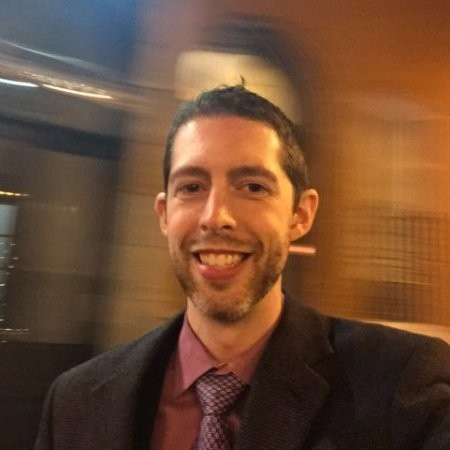Nonfungible tokens (NFTs) are leading to new streams of revenue for creatives and changing how we consider goods supported by the internet.
Here’s a surprise: The leading standard for them was born in the Philadelphia area.
Abington-based corporate development and solutions architect slash civic hacker William Entriken is the lead author on ERC-721, a 2018 standard delineating what constitutes an NFT and how NFTs can be sold or exchanged.
NFTs involve a complicated combination of blockchain and user-to-user transactions. They’re a part of cryptocurrency Ethereum’s blockchain — though it’s possible that other blockchains can create their own forms of NFTs — and each NFT transaction is encrypted with information about its creators and buyers. NFTs can be anything digital, from images to music to a tweet.
However, “you could count your house as an NFT,” Entriken told Technical.ly. “The deed is an NFT. If a piece of paper can represent your house, nothing else can represent it.”
A few years ago, at a friend’s suggestion, the Montgomery County native became more involved with blockchain. He came to collaborate with other people who shared his interest in it, including CryptoKitties founder Dieter Shirley, who eventually coauthored the standard with Entriken, Jacob Evans and Nastassia Sachs. That shared interest also led to Chain-76, an October 2018 workshop in Center City’s WeWork location that was the first local conference to focus entirely on blockchain and pharmaceutical supply chains.
ERC-721 is now the leading NFT standard (though officially, not the first, as some early NFTs functioned using the Bitcoin blockchain; there’s also CryptoPunks, which used the ERC-20 standard). Entriken’s goal in writing the standard was to explain a system of norms for NFTs that can convey their use in different ways. He is now focused on government use of NFTs and how NFTs can change healthcare practices like COVID-19 testing.
“We need to be thinking about identity, healthcare and anything that needs to be authenticated in the real world,” he said.
GenoBank.io is a company that Entriken considers to be a solid example of how NFTs can work in healthcare. GenoBank allows users to verify their COVID-19 tests via NFT, authenticating the results. This could have significant effects on travel as countries around the world open up their borders to travelers with negative COVID-19 test results.
“When you get a COVID test, it goes on an NFT,” he said. “This allows for you to prove when the test happened privately on blockchain.”
Entriken believes the future of NFTs will also include a mass adoption across various sectors including retail, where luxury items are coveted by consumers and authenticity is of great importance. Watchmaker Breitling has already started producing NFTs to verify the authenticity and origins of the watches it sells.
“If you buy a Breitling watch, you can’t buy one without getting an NFT,” he said. “The NFT is the certificate with it. [Similarly] if you buy a handbag, you want to know it’s authentic.”
Entriken still has concerns about cryptocurrency’s most significant use. The sale of drugs on the dark web has been supported by cryptocurrency’s decentralization and government regulation worldwide is still generally behind the curve in managing cryptocurrency.
“It’s a little dangerous, only because government hasn’t caught up,” he said. One example: China recently banned financial institutions from providing crypto services. “This all happened before 100 years ago when the Securities and Exchange Commission didn’t exist yet.”
Just as the QR code was once an abstract concept, the integration of NFTs in our everyday lives is only beginning.
Michael Butler is a 2020-2022 corps member for Report for America, an initiative of The Groundtruth Project that pairs young journalists with local newsrooms. This position is supported by the Lenfest Institute for Journalism.Join the conversation!
Find news, events, jobs and people who share your interests on Technical.ly's open community Slack

Philly daily roundup: Women's health startup wins pitch; $204M for internet access; 'GamingWalls' for sports venues

Philly daily roundup: East Market coworking; Temple's $2.5M engineering donation; WITS spring summit

Philly daily roundup: Jason Bannon leaves Ben Franklin; $26M for narcolepsy treatment; Philly Tech Calendar turns one


